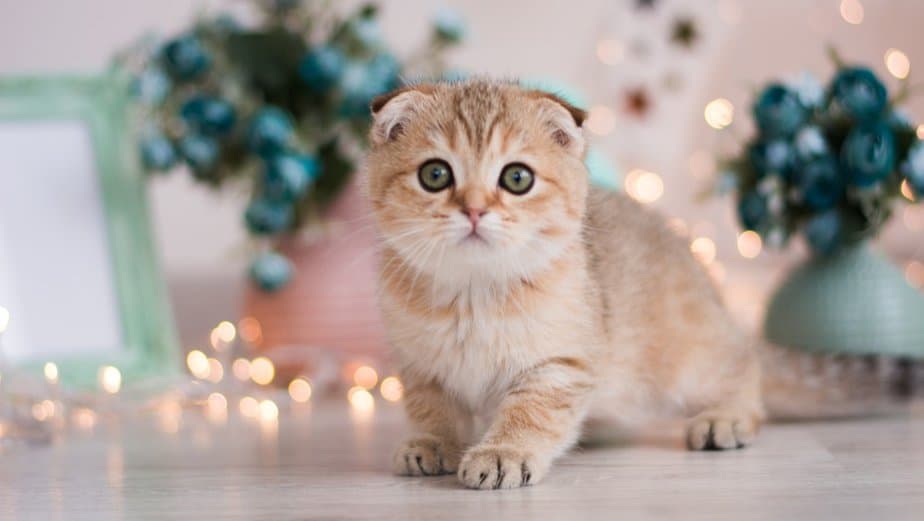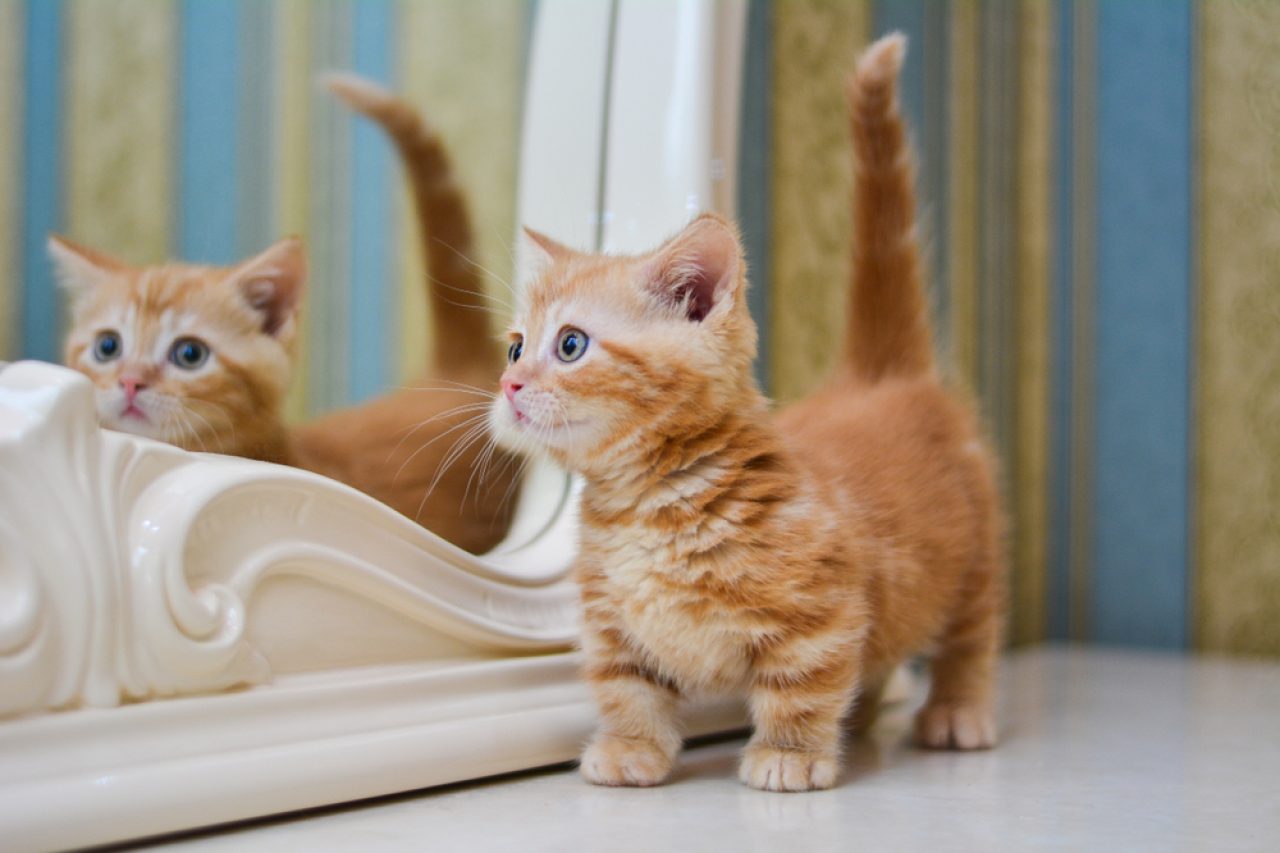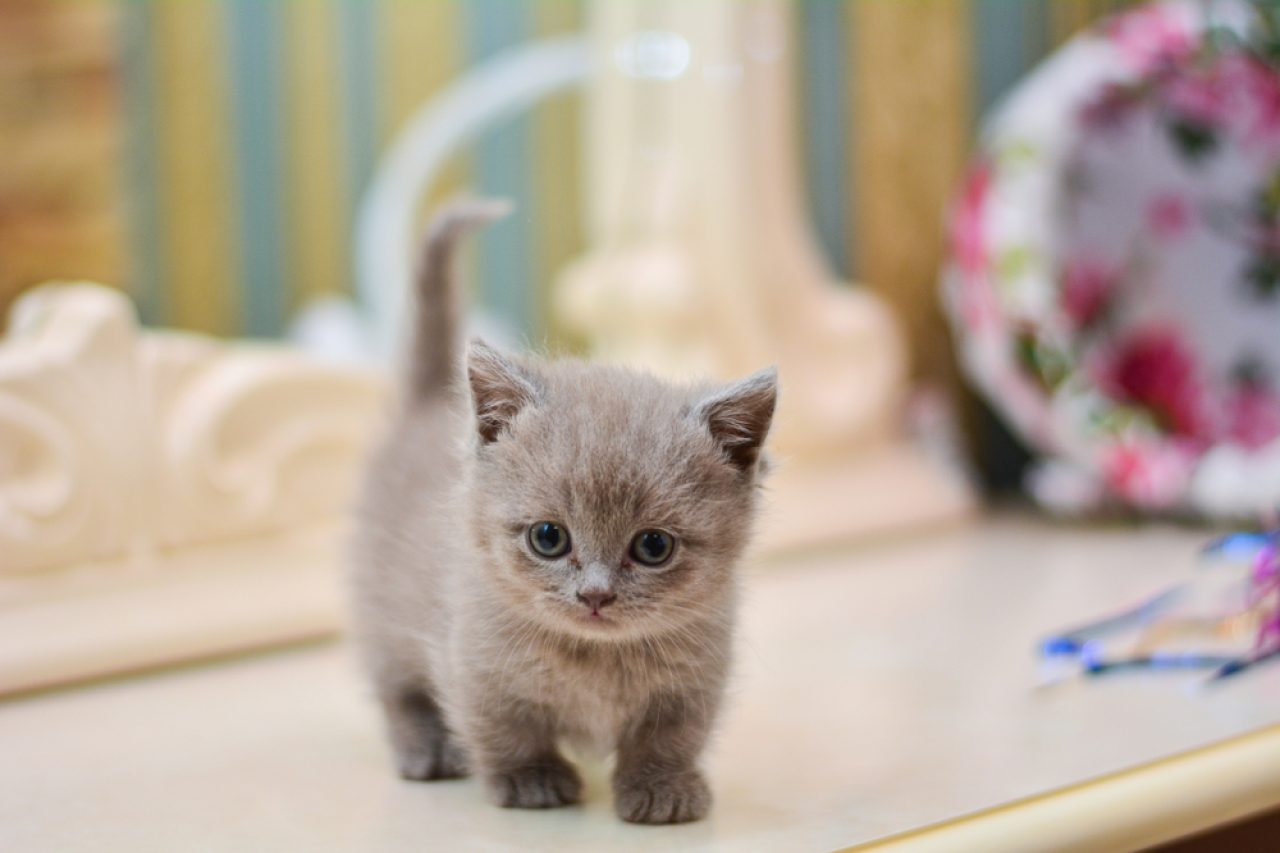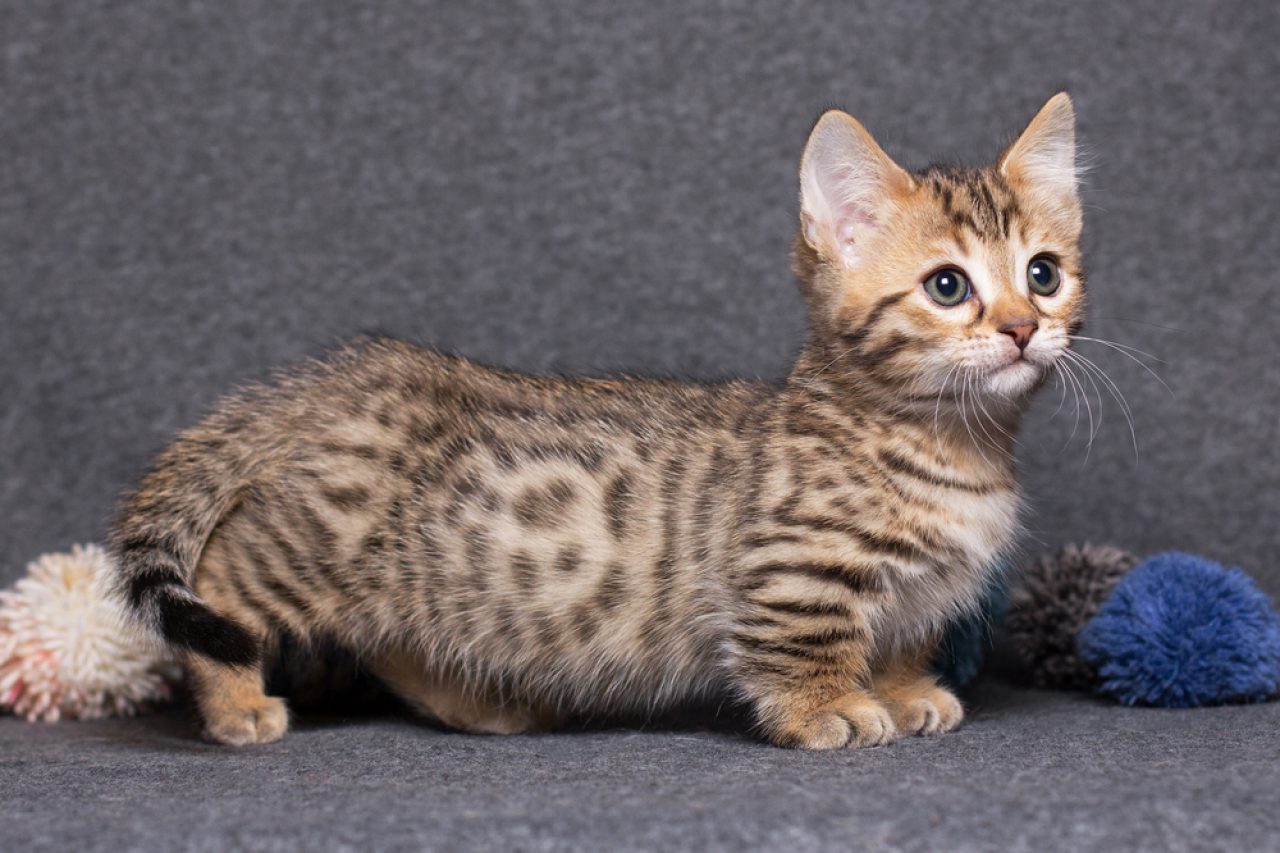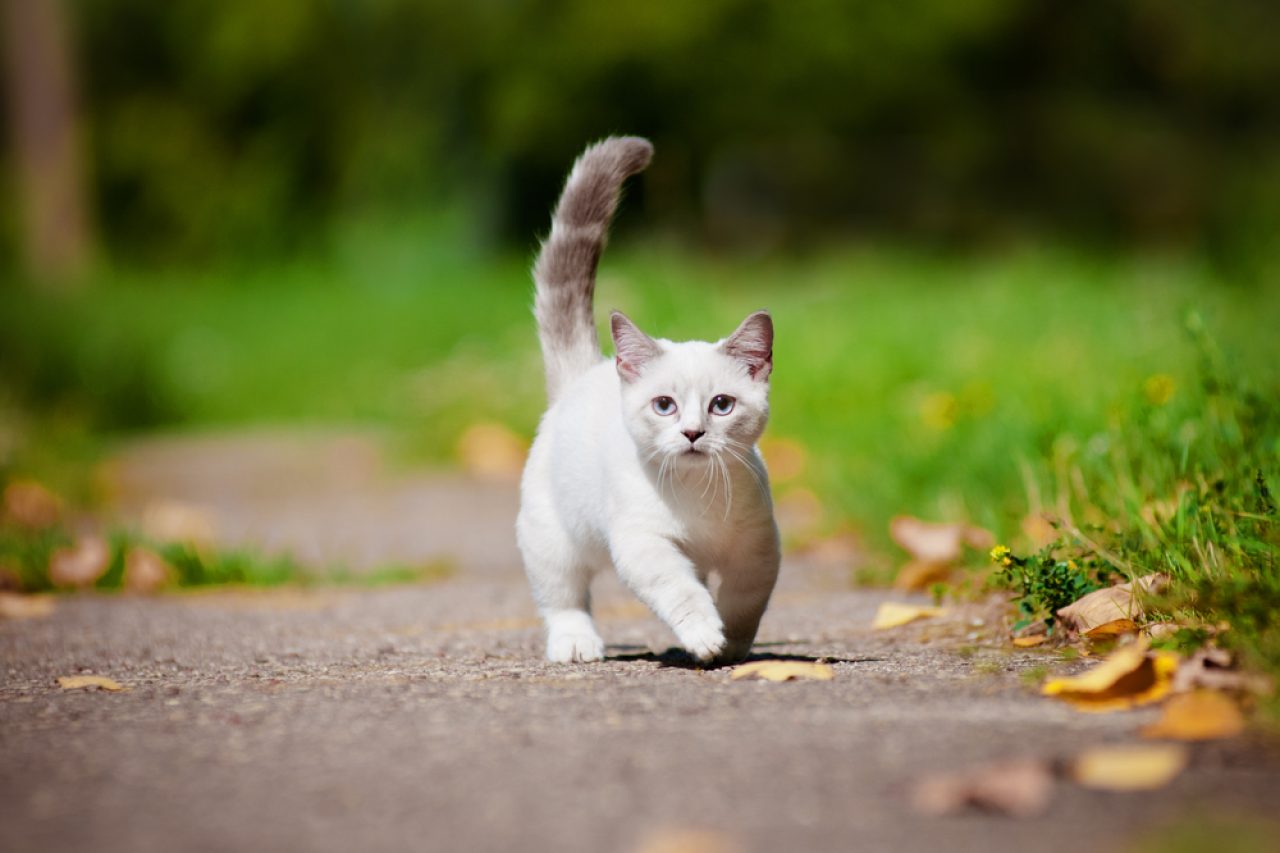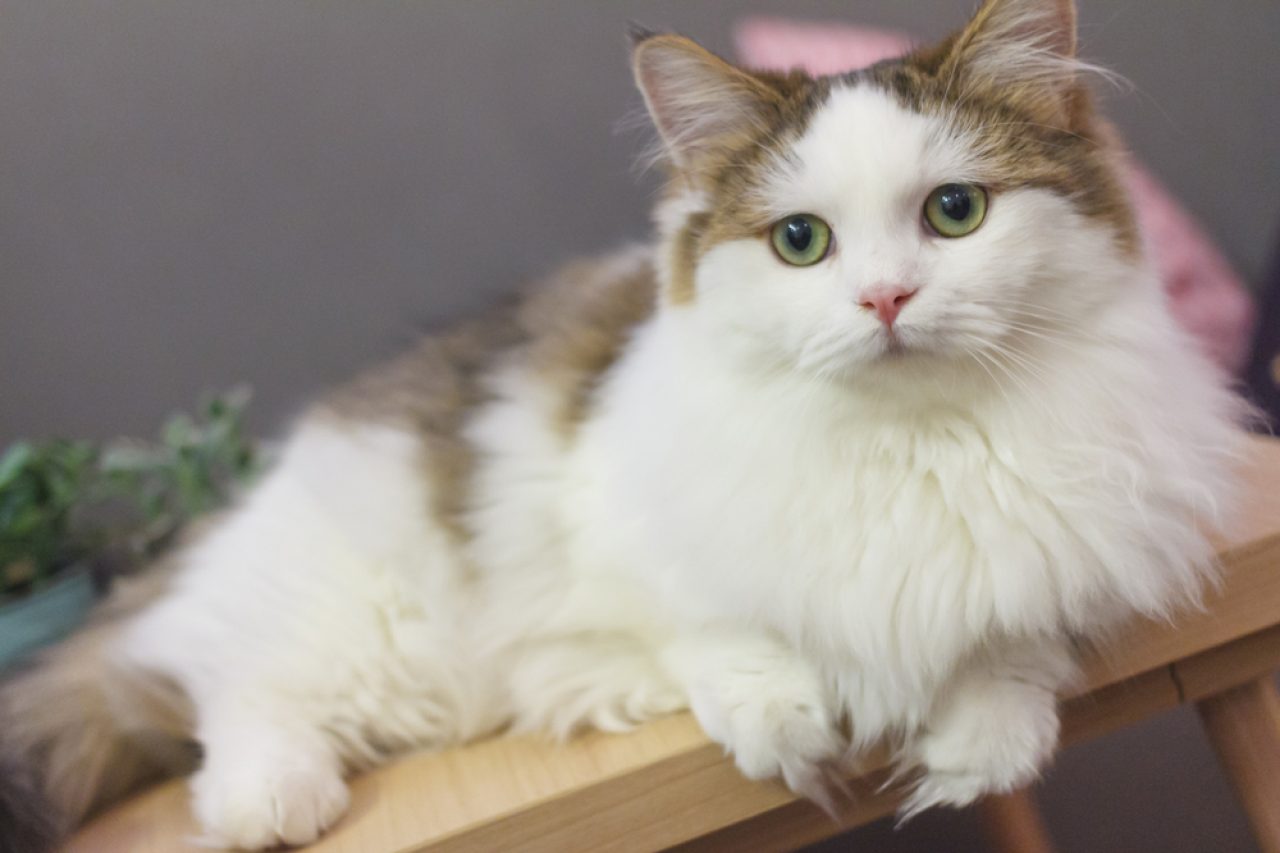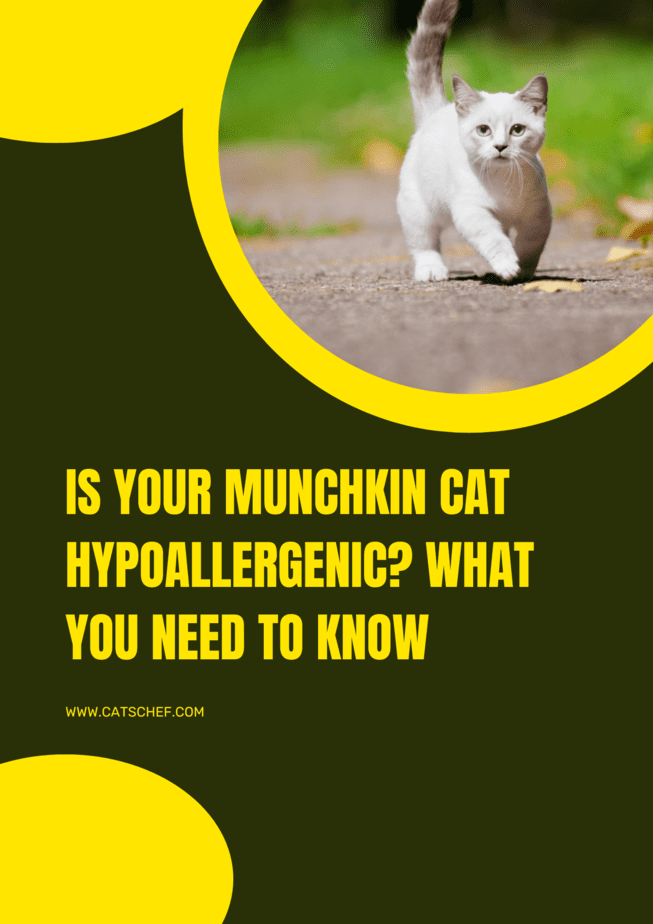📖 Table of Content:
“Is a Munchkin cat hypoallergenic?” has to be one of the most asked questions among pet parents. Especially those who get the sniffles whenever they hang out with these fluffers.
But, what are you supposed to do when you’re head over heels for these cuddle bundles while they’re making you miserable with every fluff they leave behind?
Trust me, pet parents galore have been searching for answers to the “Are any cats 100% hypoallergenic?” question for years. And, to be completely honest, nobody knows where the myth even came from because there truly can’t be a breed that’s 100% hypoallergenic.
That’s not to say that you wouldn’t be happier (and healthier) with a fluffy friend that doesn’t see shedding as a valuable pass time activity.
Also, that’s not to say that you wouldn’t be able to last a whole day without sneezing and sniffling for the first time ever because you’re four-legged friend happens to be a Sphynx.
Fluff doesn’t seem to be the only thing that triggers your allergies, which means you haven’t considered every possible outcome before setting your heart on a breed. Truth be told, that might be the reason why you haven’t been getting the answers you were hoping for.
Don’t get me wrong, Munchkins are more minuscule than other felines and they don’t go through the shedding process as often as fluffier cats.
However, whatever superpower they seem to possess, Munchkin cats are not hypoallergenic. Unfortunately, these Liliputian ladies might not be your ticket to a sniffle-free life.
Don’t worry, though! We’re bringing you everything you need to know about Munchkins! Why are they not hypoallergenic, and what you can do to make sure your day doesn’t become a sneeze fest the moment you open your bedroom door?
What makes Munchkin cats the embodiment of your wildest dreams?
Oh, there are probably a billion reasons why you want to get your hands on a Munchkin cat! Whether you’re the one that’s dealing with sniffles or someone you share your apartment with, you were clearly willing to turn a blind eye to the fact that a Munchkin might not have been the right choice.
For a good reason, though – Munchkins are some of the most affectionate, appreciative, and absolutely adorable felines out there. Alright, these mischievous monsters might have short, stubby legs. However, that doesn’t stop them from having huge purrsonalities bound to make you “Aww.”
And, Munchkins are surrounded by controversy! While they are a state-of-the-art breed, they haven’t yet been recognized as an official breed by the Cat Fanciers Association (CFA) and the American Cat Fanciers Association (ACFA). Turns out the breeding process doesn’t necessarily scream “ethical.”
As a matter of fact, those little legs we adore are a result of a genetic mutation. Breeders bank on the fact that the physical deformity makes them “more likable” and don’t care for the fact that those stubby legs affect mobility and cause health problems. Quite a tough topic, right?
Why isn’t a Munchkin cat hypoallergenic?
But, you might be more concerned with the fact that Munchkin cats aren’t hypoallergenic. And, you can’t help but wonder whether your life has been a lie for a little while. That is, considering the fact you’ve been listening to your friends babble about these beauties for months on end.
God, everybody around you always told you to get a Munchkin cat because they aren’t as humungous as Maine Coons, they aren’t fluffy as Norwegian Forest cats, and they don’t even go through the whole shedding process more than once a year.
Actually, you’re making a good point! While Munchkins aren’t 100% hypoallergenic, they might be a great choice for humans suffering from watery eyes, runny noses, and difficulty breathing whenever they hang out with a feline.
But, what does that even mean? What do Munchkins have that triggers a snuffy response from you whenever they walk past you?
Contrary to popular belief, fluff doesn’t seem to be the reason why you haven’t been able to have a feline friend. Allergy triggers among most humans are something known as Fel d 1 protein particles that can be found within dander, mucous, fluff (too), urine, and poop.
Therefore, Munchkins aren’t that bad, considering they produce average amounts of Fel d 1 protein. Overall, they don’t shed as much as some other felines.
With that little thought on your mind, you can do a couple of other things to ensure both you and your precious purrincess live a happy and healthy life for a long, long time.
Other than having your Roomba follow your Munchkin everywhere she goes, you can get someone to do the dirty work for you or have her sleep somewhere other than your bedroom. Oh, the endless pawsibilities!
What to do when dealing with the fact that Munchkin cats aren’t hypoallergenic?
1. Groom, brush and bathe your Munchkin regularly
Who thought the holy trinity of grooming, brushing, and bathing would save you from spending most of your time coughing and sniffling? But, that’s the number one thing you need to do when you’re trying to have a living arrangement with your little Munchkin.
Munchkin cats might not be hypoallergenic. But, those pampering nights are bound to save you from dander, fluff, mucus, and poop particles. Short-legged and short-haired Munchkins don’t need much grooming and brushing – once or twice a week should do the trick.
Munchkins take care of themselves. But, they might have a hard time cleaning everything because of how short they are. Those little paws can’t really reach every area. Bathe them whenever you think they need some additional cleaning and voilà!
2. Clean everything your Munchkin’s paws have touched
“Mommy keeps saying she has to vacuum AGAIN because I’m not hypoallergenic! What does that even mean – I’m just trying to mark my territory before that Siberian cat comes to play!”
That’s probably something your Munchkin would say when you start cleaning everything those stubby paws have touched.
But, when you’re dealing with allergies cleaning might be your best friend. Cleaning your Munchkin ensures she doesn’t get as much dander on everything around the apartment.
However, cleaning your apartment ensures that even the slightest reminiscence of the dander disappears with a simple swipe of the mop. Nobody’s looking to munch on a Munchkin’s fluff, right?
3. Have someone other than you do the dirty work – outside
Munchkin cats might not be hypoallergenic. But, they’re absolutely adorable, and that seems to do the trick! We know how difficult resisting those walnut eyes can be. However, getting the “you’re allergic to cats” diagnosis doesn’t have to be the end of your dreams.
Reduce the things that trigger your allergies, consult with your doctor, get proper medication and you’re good to go.
Don’t shy away from getting someone else to groom, brush, and bathe your Munchkin. This can be a friend of yours or a professional groomer. Whoever it is, that little pampering session’s bound to make a difference. As long as you make sure they do that outside of your home.
Trust me, you don’t want any of that Fel d 1 flying around the apartment!
4. Teach your Munchkin what she can and can’t do
“What do you mean you’re going to sleep and you’re not taking me with you?!” While your restrictions and boundaries might cause the wrath of a thousand felines (or only one), you need to look out for yourself.
And, you might think that sleeping in separate rooms or keeping your Munchkin off the sofa doesn’t make a difference. But, you’re wrong.
Even the tiniest of efforts help you get that dander, mucus, and other triggers out of the way. We’re not saying you should build a separate room for your Munchkin (unless you’re down?) But, you should have some house rules she should follow.
Don’t sleep together. Don’t eat from the same plate. And don’t cuddle after strenuous physical activity (a sweaty kitty might not be the best choice for you).
5. Don’t shy away from getting proper medication from your doctor
Oh, the last resort! But, medication shouldn’t be something you give a wide berth to – proper medication can make your life a lot easier.
Make an appointment with your doctor and check whether your allergies allow you to have a Munchkin while following the regiment of cleaning, cleaning, and even more cleaning.
And, after that, take the advice your doctor gives you. Whether that’s medication and information on how to deal with a Munchkin. Whether that’s a warning against getting one because of fear you might cause other health problems. Always make sure you do what your doctor tells you to do. Good luck!
Read this: Genetta Cat: The Short-Legged Leopard Of Your Dreams
